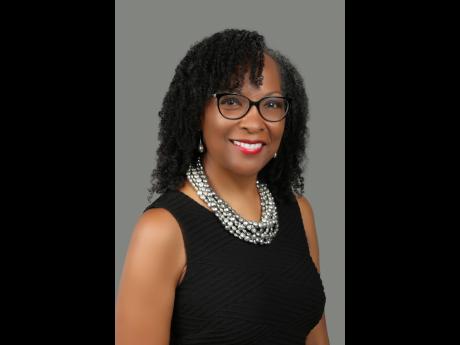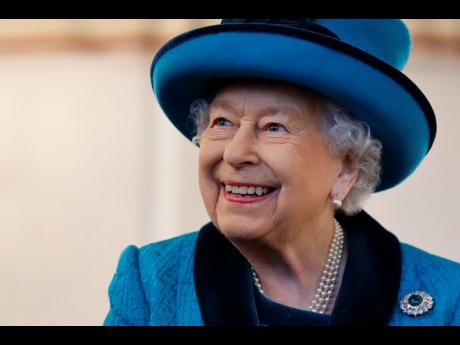Rosalea Hamilton | Our “Jamaican Republic” – A wha dat?
Jamaica is en route to becoming a “Republic.” In the widely publicised statement by Prime Minister Andrew Holness, “We are moving on,” this message was clearly signalled to the Duke of Cambridge, William, on March 23. Days earlier, PM Holness told Parliament that an advisory committee would be established to lead Jamaica away from its status as a “constitutional monarchy” to become a “Republic.” Many Jamaicans are asking: A wha dat?
In explaining this important transition that was promised (again) by PM Holness, there are two concepts of a “Republic” to note:
GOVERNMENT BY THE PEOPLE
The essential character of a “Republic” is rooted in the idea of people sovereignty… a “government of the people, by the people, for the people,” according to Abraham Lincoln. The word republic, rooted in the Latin word “rēs pūblica,” means “public thing”. A republican government is one where the nation is considered as a “public matter” and not the private property of a singular ruler, (e.g., a monarch with absolute, divine power or a tyrant), or a family (e.g., Royal family) or a ruling elite. Therefore, a key conception of a republic is a form of government where the nation belongs to the people who take active responsibility for the country as “owners”. As owners, the people elect representatives to represent them and must make them accountable through appropriate oversight mechanisms.
But this sounds like a democracy! Is there a difference? Many democracies are republics and are referred to as “democratic republics” because the government operates on the principles of both a republic and a democracy. The main difference is essentially the extent to which the people have power and can influence decisions that affect their lives. Currently, Jamaica’s electoral democracy enables people to elect their representatives but limits the extent to which the people can influence and control the policymaking and legislative process. Further, there are limited opportunities for direct democracy where individuals can determine policy or law without their representatives (e.g., participatory budgeting).
This concept of a government by the people is often ignored as it is typically assumed that our current system of “representative democracy” is a government of the people and reflects the will of the people. But does it? When the people’s representatives vote in Parliament, do they reflect the will of their constituents or the will of their political party? This, among other weaknesses in Jamaica’s democracy can be improved in the process of becoming a republic if, and only if, the people see themselves as “owners” of Jamaica and choose to actively undertake the responsibility of ownership. This includes holding representatives accountable and actively participating in processes like making submissions to Parliament, hearings, participatory budgeting, and, importantly, reforming the constitution to reflect the people’s will. Our 1962 independence constitution is a British “Order in Council” signed by a British civil servant (W.G. Agnew) on behalf of the Queen and makes no reference to “the people”. By actively changing the constitution to cement people sovereignty, it becomes a living, purposeful document relevant to the lives of the Jamaican people and enacted by the people’s representative in our Parliament.
Instead of focusing on people sovereignty by deepening and strengthening our democracy and restructuring government to enable people’s voices to be heard in the process of building Jamaica’s republic, the focus has been on removing the Queen as Head of State. This is a necessary imperative, but it’s not enough.
NON-MONARCHICAL GOVERNMENT
In the context of former colonies, like Jamaica, a government without a monarch as Head of State has become a popular interpretation of a republic. This was the focus in other Caribbean republics - Barbados, Dominica, Guyana, and Trinidad and Tobago - as well as other Commonwealth countries.
To be clear, a monarchy is a form of government where sovereignty is invested in one person. This was the dominant form of government in Europe from the end of the Roman era until around the eighteenth century. The era of “absolute monarchy” was eventually replaced by the “enlightenment era” and republican ideas where concepts such as individual rights, freedom, and self-determination undermined the claims of divine rule by the monarchs. Over centuries, especially during the “independence era,” these liberating concepts became rooted in democracies and the norms of international law. By 1960, colonial, monarchical rule was characterised as a “denial of fundamental human rights” by the United Nations General Assembly Resolution 1514 XV. The resolution also affirmed the “right to self-determination” by virtue of the right to freely determine political status as well as economic, social, and cultural development. Thus, by August 1962, Britain had an international legal obligation to grant Jamaica full independence as recently highlighted by Judge Patrick Robinson.
However, at independence, Jamaica chose to perpetuate the undemocratic, colonial, hereditary leadership of the Queen by establishing a “constitutional monarch” where the power of the monarchy was separated in the constitution. By Section 68, the Queen remained an executive head of state with weakened, ceremonial responsibilities delegated to the governor general. The real policymaking executive power was transferred to Cabinet as the “the principal instrument of policy” under the control of the prime minister, the chief executive head of government (section 69). In so doing, Jamaica, like other Caribbean countries, centralised power in the hands of the prime minister, thereby consolidating executive sovereignty instead of people sovereignty.
The retention of the Queen as Head of State at independence and beyond was due to the actions (and lack of actions) of Jamaica’s political leaders, led by Prime Minister Alexander Bustamante and Opposition Leader Norman Manley, as well as the people of Jamaica. According to Judge Robinson, Busta and Manley “exhibited a lack of confidence in the Jamaican people to govern themselves, free from any constitutional attachment to the British Monarch”. This lack of confidence may well account for the length of time it has taken subsequent political leaders to remove the Queen as Head of State and for the absence of adequate mechanisms to empower the people of Jamaica. Over the past 60 years, while some Jamaicans have continued various forms of anti-colonial resistance, many Jamaicans have accepted “a suh di ting set” and have not demanded people sovereignty. During this period, too many Jamaicans have acted as “tenants” or “squatters” rather than the real owners of Jamaica and, therefore, have allowed political elites to take ownership of Jamaica and to make decisions in their own interest and that of their supporters and funders.
It is time for Jamaicans to “Get up, Stand up” and take ownership of our country by building a real republic that shifts sovereignty from the Executive (including the ceremonial powers of the Queen) to the people.
- Rosalea Hamilton, PhD,is the founding director of Institute of Law and Economics. Send feedback to rosaleahamilton@gmail.com


